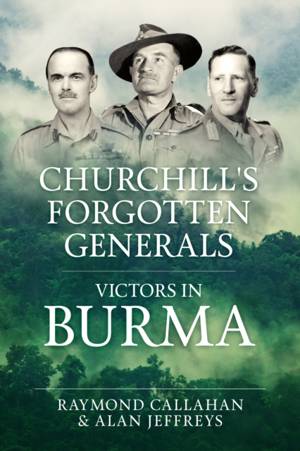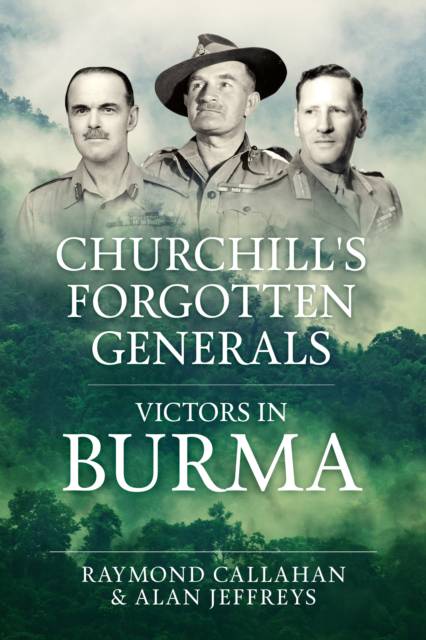
- Retrait en 2 heures
- Assortiment impressionnant
- Paiement sécurisé
- Toujours un magasin près de chez vous
- Retrait gratuit dans votre magasin Club
- 7.000.0000 titres dans notre catalogue
- Payer en toute sécurité
- Toujours un magasin près de chez vous
Description
The crucial roles of Generals Auchinleck, Slim, and Savory in the campaigns in Northeast India and Burma (Myanmar) have been largely overlooked in the historiography of the Second World War.
Prime Minister Winston Churchill dismissed General Claude Auchinleck as Commander-in-Chief in the Middle East after the First Battle of Alamein, but he went on to serve as Commander-in-Chief India for the remainder of the war. In this post he was instrumental in preparing the Indian Army for jungle warfare and improving conditions for both officers and men, not least through reforms to pay and welfare.
General William Slim, later celebrated as the commander of the 14th Army, remains better known--his memoir Defeat into Victory captured the spirit of the Burma campaign. Popular with British and Indian troops alike, "Bill" Slim oversaw one of the most striking turnarounds of the war. Auchinleck and Slim would both be promoted to Field Marshal after 1945.
Major General Reginald Savory, as Director of Infantry from 1943 to 1945, played a vital though long-forgotten role in ensuring that battalions across India were trained and equipped for the unique demands of jungle warfare. His influence extended into the postwar period, culminating in his service as Adjutant General until the independence of India and Pakistan in 1947.
Together, the appointments of Auchinleck, Slim, and Savory in 1943 proved pivotal to the eventual defeat of the Imperial Japanese Army in Burma. For the first time in the war, the key figures shaping Indian Army policy all came from within its ranks and understood its traditions and ethos. their leadership helped forge the Indian Army into a force capable of both victory in the field and successful transition at independence.
Prime Minister Winston Churchill dismissed General Claude Auchinleck as Commander-in-Chief in the Middle East after the First Battle of Alamein, but he went on to serve as Commander-in-Chief India for the remainder of the war. In this post he was instrumental in preparing the Indian Army for jungle warfare and improving conditions for both officers and men, not least through reforms to pay and welfare.
General William Slim, later celebrated as the commander of the 14th Army, remains better known--his memoir Defeat into Victory captured the spirit of the Burma campaign. Popular with British and Indian troops alike, "Bill" Slim oversaw one of the most striking turnarounds of the war. Auchinleck and Slim would both be promoted to Field Marshal after 1945.
Major General Reginald Savory, as Director of Infantry from 1943 to 1945, played a vital though long-forgotten role in ensuring that battalions across India were trained and equipped for the unique demands of jungle warfare. His influence extended into the postwar period, culminating in his service as Adjutant General until the independence of India and Pakistan in 1947.
Together, the appointments of Auchinleck, Slim, and Savory in 1943 proved pivotal to the eventual defeat of the Imperial Japanese Army in Burma. For the first time in the war, the key figures shaping Indian Army policy all came from within its ranks and understood its traditions and ethos. their leadership helped forge the Indian Army into a force capable of both victory in the field and successful transition at independence.
Spécifications
Parties prenantes
- Auteur(s) :
- Editeur:
Contenu
- Nombre de pages :
- 214
- Langue:
- Anglais
- Collection :
Caractéristiques
- EAN:
- 9781804516713
- Date de parution :
- 30-09-25
- Format:
- Livre relié
- Format numérique:
- Genaaid
- Dimensions :
- 155 mm x 239 mm
- Poids :
- 539 g

Seulement chez Librairie Club
+ 83 points sur votre carte client de Librairie Club
Les avis
Nous publions uniquement les avis qui respectent les conditions requises. Consultez nos conditions pour les avis.





